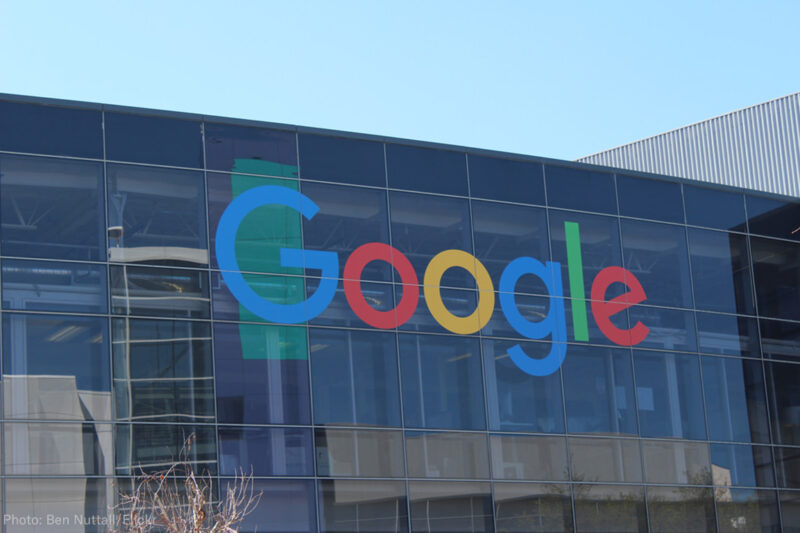
Last week, global online-advertising giants Google and Facebook announced that they will no longer accept advertising from bail bonds agencies. In a blog post, Google said its decision to block bail bond ads is part of a broader effort to protect users from damaging content — the same reason it had recently banned ads for payday loans. This development comes just a month after a scathing front page report in The New York Times, which documented the exploitative nature of the for-profit bail bonds industry.
“We made this decision based on our commitment to protect our users from deceptive or harmful products,” said David Graff, Google’s senior director of global product policy. Monika Bickert, Facebook’s vice president of global policy management, added, “Advertising that is predatory doesn’t have a place on Facebook.”
The announcements mark an exciting new phase of the national movement to end money bail — it just went mainstream.
Every year, millions of people in the U.S. are forced to make a choice: pay cash bail after their arrest or face incarceration before trial. This occurs despite the fact that they are presumed innocent and have not been convicted of a crime. To avoid being locked up while their cases go through the courts — which can sometimes take months or even years — people who cannot afford bail must pay a non-refundable fee to a for-profit bail bonds company to front the required bail amount. Even if the charges are dropped a day after the contract is signed with the bail bond company, families are still responsible for this fee, which can be tens of thousands of dollars.
For many others, paying bail is simply not an option. On any given day, there are about 615,000 people incarcerated in local jails in the United States, and 465,000 of them, or a staggering 76 percent of the total jail population, are there awaiting trial. This means that they have not been convicted of a crime, yet they languish in jail cells pretrial, often because they cannot afford cash bail.
The financial burden of this system harms individuals; it harms families; and it disproportionately affects Black and low-income communities. That’s why efforts like the National Bail Out collective — whose crowdfunded #FreeBlackMamas campaign helped ensure dozens of mothers could spend Mother’s Day with their children — exist.
But the extraordinary lengths we must go through in order to stem the tide of mass incarceration underlines a broader question: Why do we have cash bail to begin with when it’s clearly not benefitting our communities?
The only winner in this broken system is the bottom line of for-profit bail bonds businesses and the large insurance corporations, some of them multinational, who underwrite them. All told, the bail bonds industry make about $2 billion a year in profit.
The bail industry justifies its existence by claiming that it keeps Americans safe by ensuring that individuals show up to their court dates. But the truth is that there are alternatives to cash bail, like reminding people about their court dates, that ensure appearance in court and that do not lead to the incarceration of people who can’t pony-up the predatory fees to the bail bonds companies. For example, Washington, D.C., has virtually eliminated money bail yet 90 percent of people released following arrest have made all scheduled court appearances.
If you think that it’s unjust for big corporations to make a profit off people facing incarceration, then you’re not alone. The United States and the Philippines are the only countries in the world that allow companies to operate for-profit bail operations.
To move us towards a system that prioritizes people over prisons or profit, we first need to be able to clearly diagnose the problem. That’s why this announcement from Google and Facebook matters. It’s a sign that the days when the for-profit bail industry could take their cut without being held accountable for their role in fueling mass incarceration are coming to an end.
The big money interests in bail aren’t taking it lightly that Americans and companies like Google and Facebook are beginning to turn on the idea of for-profit bail. They’ve established political action committees that are dedicated to getting politicians who back for-profit bail elected. Certainly, this industry will not go away without a fight. And we have to be ready for it, which is why the ACLU is fighting for bail reform in 38 states right now.
The for-profit bail system fuels mass incarceration and contributes to racial and economic inequalities. One in five people incarcerated in the United States are in jail awaiting trial, haven’t even been convicted of a crime, and are often too poor to afford cash bail. It is a destructive force that undermines the rights of people who come into contact with the criminal justice system, and it must be abolished. Action taken by major companies like Google and Facebook are a step in the right direction.
Stay informed
Sign up to be the first to hear about how to take action.
By completing this form, I agree to receive occasional emails per the terms of the ACLU's privacy statement.
By completing this form, I agree to receive occasional emails per the terms of the ACLU's privacy statement.

